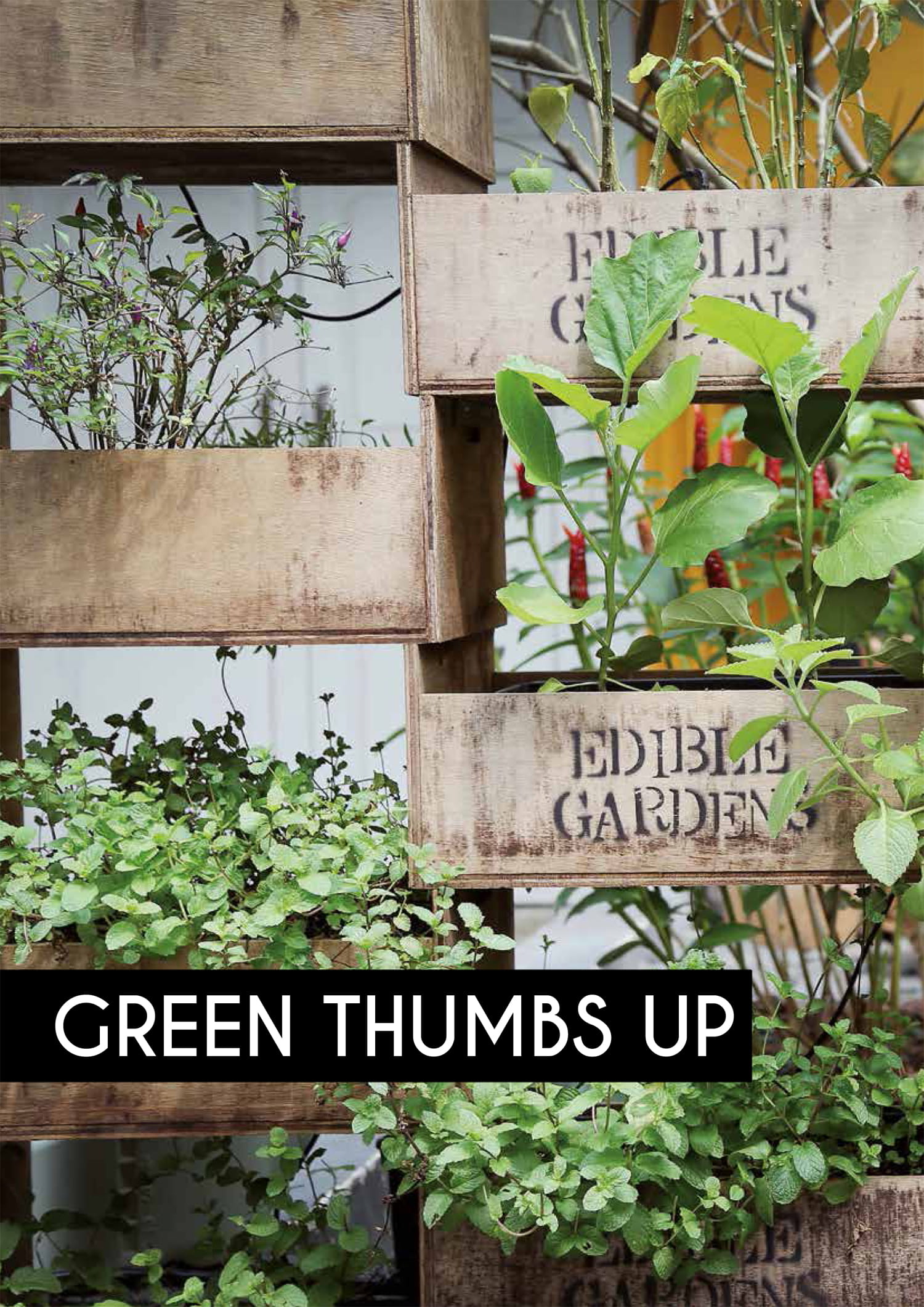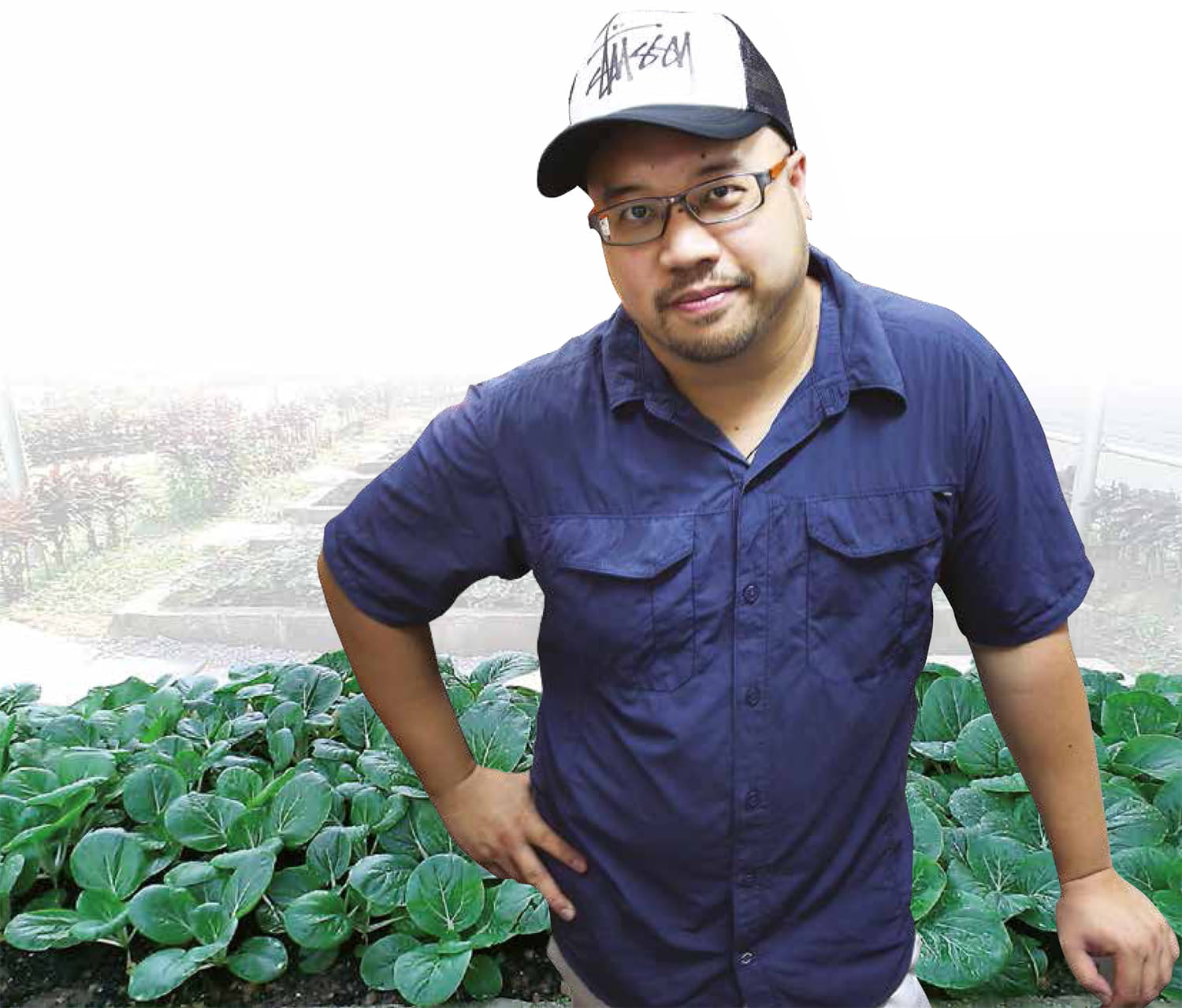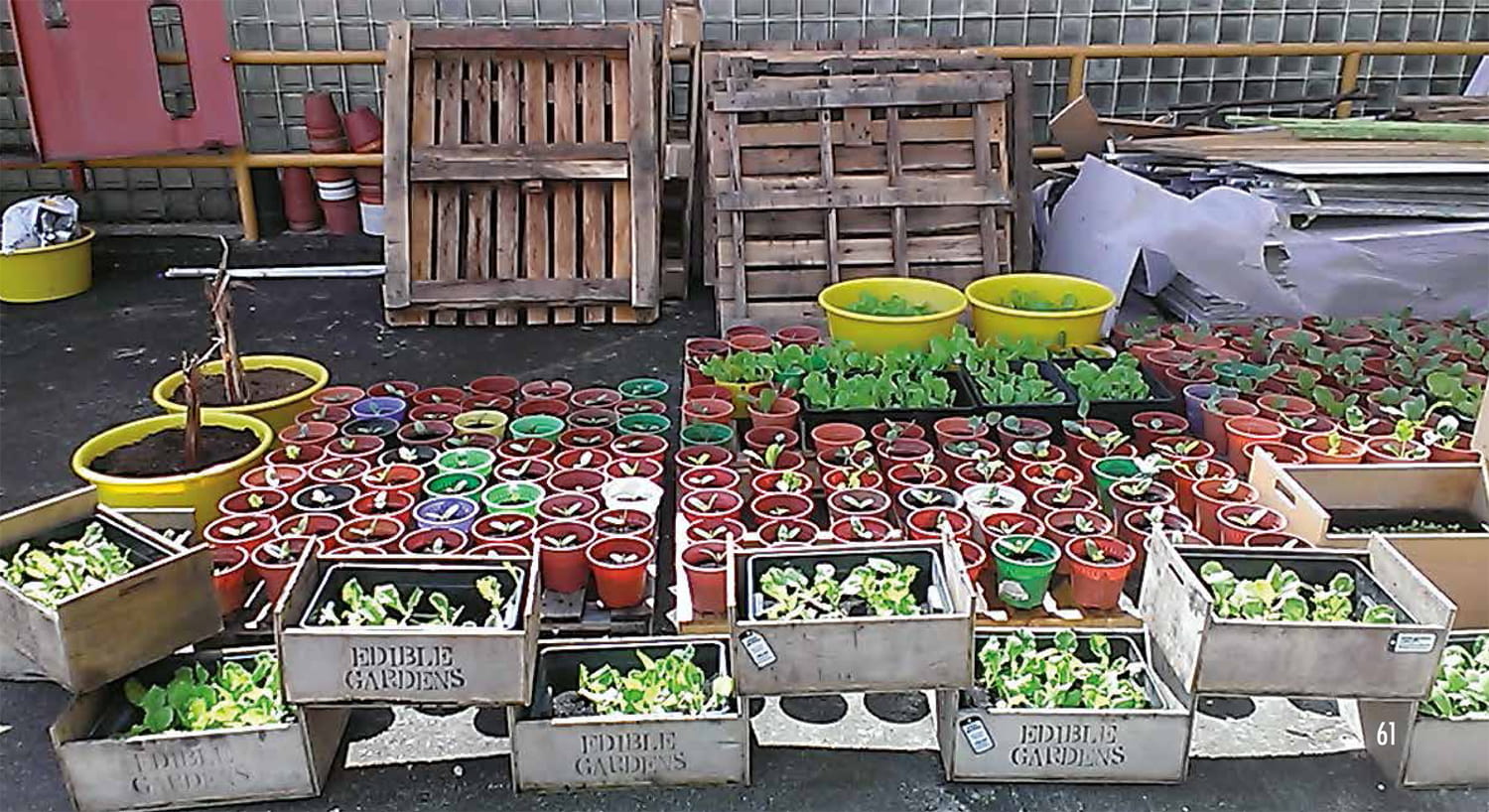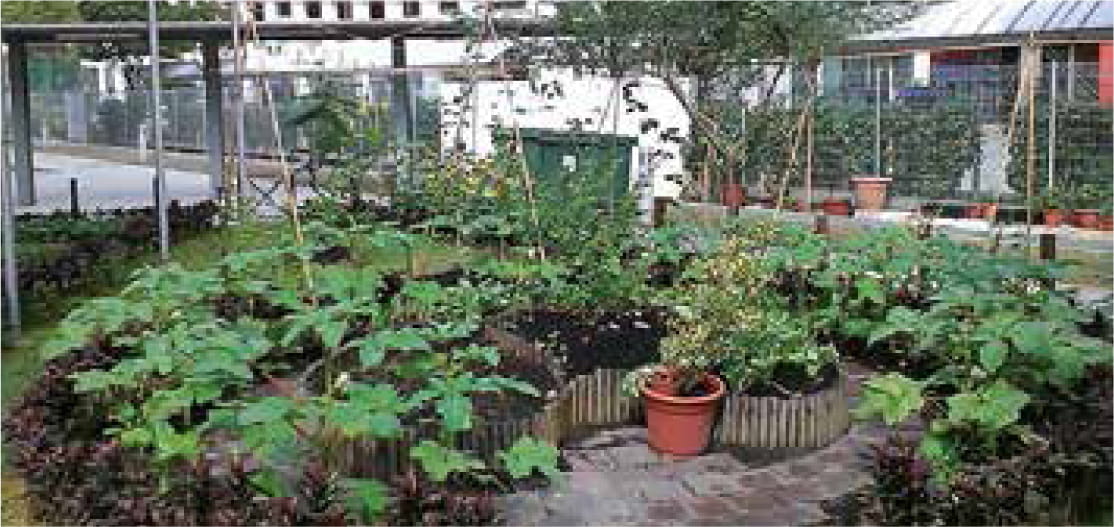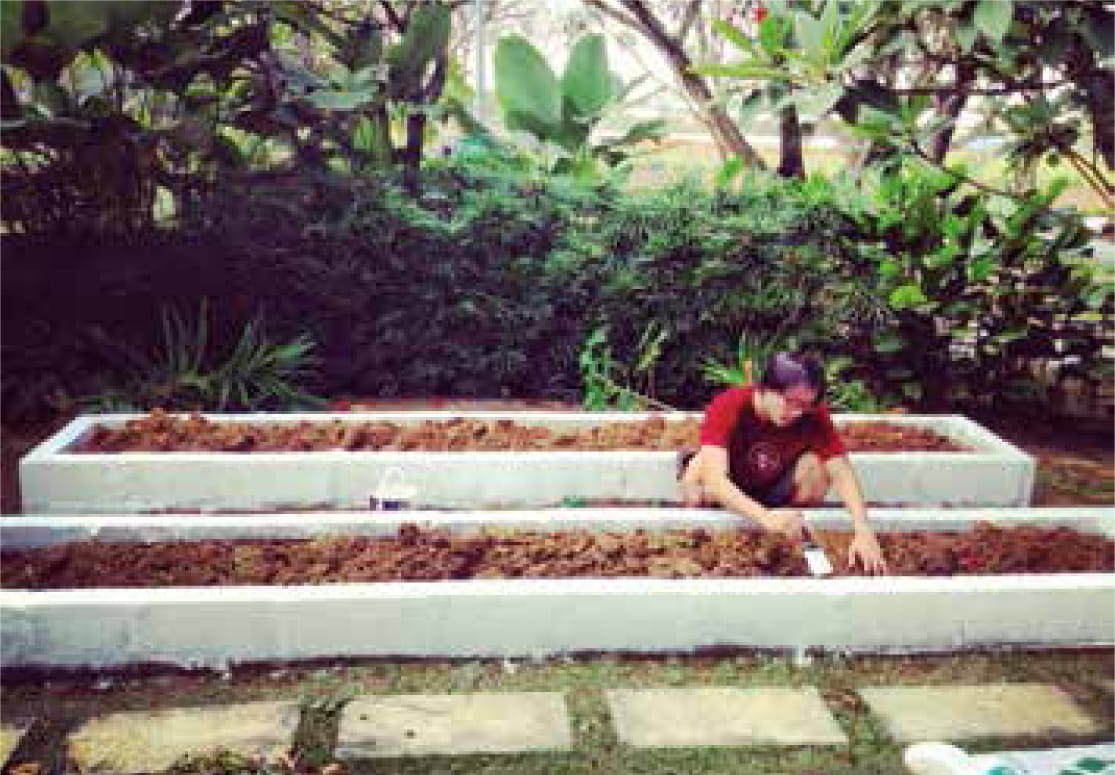Stories > Green Thumbs Up
Green Thumbs Up

To battle high costs in land-scarce Singapore and buoyed by the growing demand to buy local produce, chefs and foodies are driven by the sustainable consumption movement that is rapidly winning converts.
By Joseph Lim
jorn Shen, chef and owner of local restaurant, Artichoke, caused quite a stir in 2010 with his unconventional approach of harvesting ingredients from his herb and vegetable garden situated just outside his restaurant’s kitchen, instead of procuring them from a supplier as was the normal practice. Even though this concept isn’t new at all in some parts of the world, this was surely, a novelty concept for the dining scene in Singapore.
The idea of ‘sustainable consumption’ or the ‘farm-to-table concept’ is already more commonplace in countries like landscarce Hong Kong, and now Singapore is witnessing a growing number of eateries practising this movement. Pioneers include cocktail bar 28 Hong Kong Street, The Green Door, and Maison Ikkoku, all of which have some sort of petite herb gardens ensconced in their backyard or frontage.
Going Local
In 2007, the Americans coined the term ‘locavore’ which simply means eating food that is locally produced. Other countries such as Australia and United Kingdom have also been great proponents of this practice; where land is plenty and people are buying plots of land to raise their crops adjacent to their eateries. Interestingly, some of these countries’ foodies are spurred by the mindset to shop local because they believe that it supports this ‘micro-industry’ of such farmers.
The Agri-Food and Veterinary Authority of Singapore source revealed that only 7% of Singapore’s food is grown locally, with the bulk of the produce supplied by neighbouring countries such as Malaysia, Indonesia, Thailand and Philippines. As Singapore’s population increases, it only means that eventually, precious land for farming will shrink, as more land will be needed for residential and commercial developments.
But Shen has no green-finger smarts, realising early on that tending to boxes of herbs and vegetables every day wouldn’t be the best use of his time.
Inventive chef Bjorn Shen has collaborated with Edible Gardens’ Bjorn Low to facilitiate the use of freshly grown herbs, vegetables and spices to feature prominently in his dishes
“At that time, Bjorn Low was looking to start up a small business upon returning from the United Kingdom,” explains Shen. “I’d been looking for someone to work with, as I had previously been a chef in Australia where I was always very close to the sources of my produce. When I came back to Singapore to open Artichoke, I never got that same kind of producer-chef chemistry going with anyone. When Bjorn and I first met, we hit it off right away, and we knew that we would work on something together. The Edible Gardens was still very new at the time, and we wanted to give them the support of being the first restaurants to go ‘large’ with them.”
The Edible Gardens supplies freshly-grown herbs such as lemongrass, mint, chives and basil. They come in charming, rustic wooden boxes that are stacked to lend a homey touch to Artichoke’s al fresco area. “Customers regularly comment on how lovely it is to smell the fragrance of the herbs when the leaves rustle in the wind,” says Shen with a smile.
The Cajun Kings is another advocate of The Edible Garden’s herb boxes. Situated in the leafy suburbs of Sommerville, Upper Serangoon Road, its owner Melvin Chen explains, “Our cuisine is a mix of Vietnamese and Louisiana. We combine the basil, Sriracha (a spicy Thai chilli sauce), and butter to form a sauce that is the perfect foil for the delicate natural flavours of seafood. The herb planters not only beautify our eatery’s frontage, but inspires our chef Andre Soen to experiment with local herbs in his new culinary creations.”
Bjorn Low is also trying to grow habanero chilies in Singapore and may offer the plants to The Cajun Kings. “We’re quite excited at the prospect of having locally-grown habanero chilies, which is a key ingredient in our spicy Louisiana cuisine,” says Shen.
Heartland Influence
However the people at The Edible Gardens project aren’t just relying on restaurants to promote this message of sustainable practices through urban farming. Both co-founders Bjorn Low and Rob Pearce are determined to influence locals and green thumbs across Singapore.
In fact, some heartland estates such as The Backyard Forest and Raised Beds at Bishan, and a rooftop garden in Kembangan, have become ‘test beds’ for their ideas.
“I am thrilled at the thought of going to these mini-farms within a stone’s throw from where I live,” says Samantha Yong, who lives in Bishan and is a mother of two. “During each visit, there is something new to see; like fruit ripening and shoots appearing. I get my kids involved too, and they have fun turning the soil and getting dirty with transplanting seedlings. It is also an educational avenue to teach children where such produce come from. Interestingly, the whole community of like-minded individuals with their kids and grandparents come here during the weekends to tend to the patch of vegetables and herbs. I wish there could be more of such farms in other estates, because it really promotes community spirit.”
“We opt for natural fertilisers and do not use synthetic pesticides of any sort. Our objective of not harming the environment aligns well with our business philosophy.”
— Bjorn Shen, Chef and Owner of local restaurant, Artichoke
Low Thng Khia, a retiree, observes that plants and herbs have become a common topic for older folks to talk about. “I would not have made so many new friends if not for this patch of greenery!”
Over at the rooftop at Kembangan, a nearby resident Sulaiman B Yousof looks forward to visiting the verdant patch. “I find it so relaxing to come here and appreciate the herbs and vegetables. It’s something I look forward to the end of the day.” The 70-year-old retiree brings his grandchildren there to relax and play around in the garden. It has become a great way for older people to teach the younger generation about food and ecology.
Proudly Preaching
Part of The Edible Gardens’ business philosophy is to promote urban farming techniques to lay people, especially in the heartlands. Older folks can relate to farming very well because back in the ’60s and ’70s, farms in Yio Chu Kang, Chua Chu Kang, and Hougang were prevalent. These vegetable plots would be situated beside pig and poultry farms where famers would use animal dung to fertilise the crops.
Another strategist who helps with The Edible Garden’s work is often referred to as ‘Uncle Lim’. This friendly 60-year-old gardening veteran knows all the tips and tricks to cultivate a vegetable garden. He shares tips with the volunteers in the garden community session mainly in Mandarin and with a smattering of English.
Low explains the organic farming techniques he prefers. “We opt for natural fertilisers and do not use synthetic pesticides of any sort. Our objective of not harming the environment aligns well with our business philosophy. I’m trained in biodynamic agriculture, so my approach to farming is very much tuned that way.”
With a growing number of medical literature advocating the benefits of healthy eating, savvy adults are increasingly opting for organic foods, which have been known to provide a variety of benefits such as fewer food allergies and better body immunity. Many are also realising the need to be ethically responsible in food production.
Leading the Change
Comcrop is another proponent of the local ‘farm-to-table’ movement. Its flagship high-tech urban farm is at *SCAPE building situated in the heart of Orchard Road. With the support of the National Youth Council, this 600sqm rooftop commercial farm will be launched later this year.
The farming project is developed to be ecologically, financially and socially sustainable. The organisation includes opportunities to engage and employ people with special needs whenever possible. This allows the company to contribute 20% of its profits to charitable causes.
Allan Lim, co-founder of Comcrop, says, “All our crops are tasty and healthy because we use natural fertilisers and have adopted aquaponics (a food production system that combines conventional aquaculture – raising aquatic animals such as fish or prawns in tanks – with hydroponics) in a symbiotic environment. These two philosophies underpin our business mentality.”
Plants grown here include a few types of local vegetables, basil, spearmint, peppermint and heirloom tomatoes. Comcrop intends to produce 15,000kg of fresh vegetables for the local market.
Comcrop also sells these plants to the general public from its rooftop commercial farm at *SCAPE building itself. In addition, Comcrop also offers young people an opportunity to learn an ‘earth-friendly’ skill to make a change in society, and many willing hands have come forward. Response has been good, with participation from Victoria Junior College and the Singapore Polytechnic. Coming forward also to get their students involved in these ‘earth-friendly’ skills have been St Andrew’s School for Autism, and Assumption English High School.
“I get my kids involved too, and they have fun turning the soil and getting dirty with transplanting seedlings.”
— Samantha Yong, mother of two
Volunteers have stepped forward to help tend to the gardens.
“We were a little sceptical about introducing the concept to a younger audience, but the results have been very encouraging,” remarks Lim. “We mentored the youths at Enactus Singapore Polytechnic about aquaponics and helped them set up the farm at *SCAPE. Paying it forward, Enactus’ youths helped Victoria Junior College students set up their farm in the school’s compound. I think it’s a wonderful way of engaging youths beyond the standard Community Initiatives Programme activities to encourage them to be more participative in society. Comcrop firmly believes that it can educate and cultivate a sense of resilience in land-scarce Singapore with regard to food security problems, rather than be resigned to the fate that we will never grow enough food for ourselves.”
As Singapore readies itself for sustainable consumption, it is slowly winning converts through the efforts of these two companies. The Ministry of National Development is also in the midst of lending assistance to these earth-friendlyorganisations, with the hope of promoting such urban agriculture in our Garden City, in creating a vibrant and sustainable living environment for future generations.
“I think it’s a wonderful way of engaging youths beyond the standard Community Initiatives Programme activities to encourage them to be more participative in society.”
— Allan Lim, Co-founder of Comcrop

